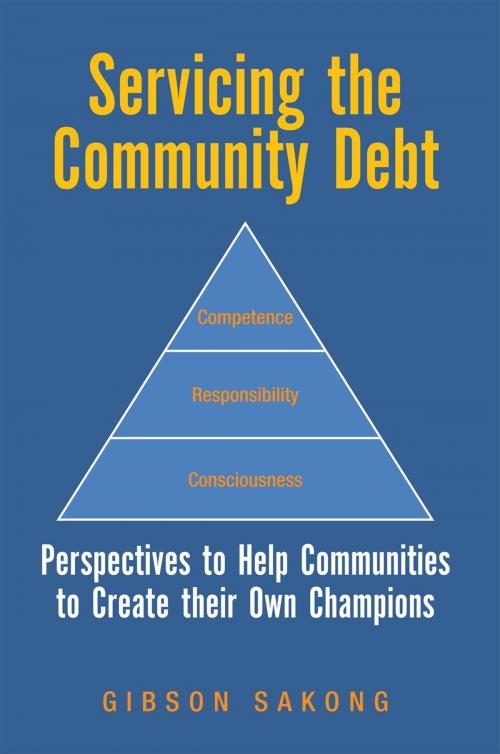Servicing the Community Debt
Perspectives to Help Communities to Create Their Own Champions
Nonfiction, Social & Cultural Studies, Social Science, Cultural Studies, African-American Studies| Author: | Gibson Sakong | ISBN: | 9781453597286 |
| Publisher: | Xlibris UK | Publication: | December 10, 2010 |
| Imprint: | Xlibris UK | Language: | English |
| Author: | Gibson Sakong |
| ISBN: | 9781453597286 |
| Publisher: | Xlibris UK |
| Publication: | December 10, 2010 |
| Imprint: | Xlibris UK |
| Language: | English |
The book asserts that the most realistic way for South Africa to successfully free itself from the legacies of apartheid is to meet two fundamental conditions: under-privileged communities must meaningfully embrace learning and workplaces must be turned into places of optimal value-creation. It also argues that a critical ingredient needed to accomplish this is a new spirit of leadership championed by communities. The author cautions that South Africa should follow a courageous path of making what works to work, instead of allowing itself to be overwhelmed by the negative power of what is wrong. He also points out that while corruption and incompetence are real and need decisive action, unbridled self-interest and hubris in various forms are also very serious threats which, although more difficult to remedy, require both competent leadership and effective strategies to bring under control. The book calls for a courageous new age of knowledge consciousness where ignorance is replaced by enlightenment, facilitated by leaders who do not just inspire momentary excitement in people, but who can practically educate people to embrace learning and practice real patriotism on a sustainable basis. It advocates a three-phase human capital development strategy based on the principles of consciousness, responsibility and competence, which can assist people to achieve significance in their lives.
The book asserts that the most realistic way for South Africa to successfully free itself from the legacies of apartheid is to meet two fundamental conditions: under-privileged communities must meaningfully embrace learning and workplaces must be turned into places of optimal value-creation. It also argues that a critical ingredient needed to accomplish this is a new spirit of leadership championed by communities. The author cautions that South Africa should follow a courageous path of making what works to work, instead of allowing itself to be overwhelmed by the negative power of what is wrong. He also points out that while corruption and incompetence are real and need decisive action, unbridled self-interest and hubris in various forms are also very serious threats which, although more difficult to remedy, require both competent leadership and effective strategies to bring under control. The book calls for a courageous new age of knowledge consciousness where ignorance is replaced by enlightenment, facilitated by leaders who do not just inspire momentary excitement in people, but who can practically educate people to embrace learning and practice real patriotism on a sustainable basis. It advocates a three-phase human capital development strategy based on the principles of consciousness, responsibility and competence, which can assist people to achieve significance in their lives.















